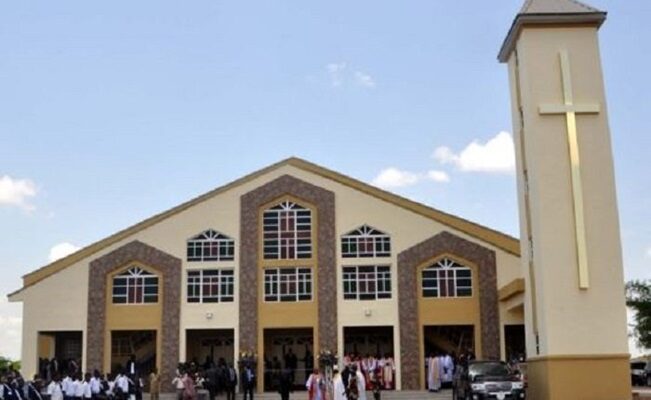The Nigerian Church stands at an inflection point — luminous in size yet shadowed in spiritual depth. Our sanctuaries are crowded, our choirs resound with flawless harmony, our pulpits are technologically sophisticated, and our calendars overflow with programmes. Yet for all our numerical expansion and structural grandeur, a disturbing question lingers in the minds of discerning observers: has the wind of the Spirit — the ruach of God — grown faint in our midst? Pastor Chris Oyakhilome once declared, “A church without the Holy Spirit is like a body without breath — resplendently adorned yet irreversibly lifeless.” His metaphor is both poetic and diagnostic. Nigeria’s Christian community is vibrant in visibility but increasingly vulnerable to a quiet spiritual suffocation. It is possible to have the scaffolding of religion without the substance of divine power; to have the architecture of worship without the animating breath of God.
In the annals of Nigerian Pentecostal history, the Spirit’s movement was never reducible to spectacle. The ministry of Apostle Joseph Ayo Babalola in the 1930s and 40s was marked by an almost volcanic intensity of prayer and consecration. Reports from that era speak of all-night vigils on mountain ridges where prayers roared like waterfalls, drawing men and women to repentance without publicity or performance. Archbishop Benson Idahosa’s proclamations in the 1970s and 80s carried a prophetic boldness that unsettled political systems and challenged spiritual lethargy. These revivals were not crafted by marketing strategies; they were born in travailing prayer, fasting, holiness, and uncompromising surrender to the Spirit’s unpredictability.
Today, the ecclesiastical landscape is different. Many churches operate like finely tuned corporations. Worship services are impeccably choreographed, sermons are carefully branded, and social media feeds gleam with curated images of “ministry excellence.” Yet the Spirit’s wind — which is sovereign, disruptive, and transformative — often feels domesticated. We have mastered the art of religious activity while quietly losing the capacity for spiritual astonishment. Prophet T.B. Joshua warned in one of his sermons, “The altar is not a theatre for applause but a furnace for refining souls.” Yet, in many places, the pulpit has become a stage for personalities, a bargaining table for political endorsements, and a marketplace for prophetic consultancy. What once was a sacred meeting point between God and His people risks devolving into a transactional platform where divine presence is assumed but not necessarily encountered.
African wisdom says, “When the harmattan wind blows, even the tallest grass must bow.” The Spirit’s wind, when permitted to sweep through the church, brings such a humbling. It dismantles pride, purges hidden corruption, severs our reliance on human charisma, and exposes the impotence of religious form without divine fire. Theologically, this aligns with the Spirit’s work in sanctification — the gradual yet radical transformation of believers and communities into conformity with the holiness of Christ. Bishop David Abioye once remarked, “Revival is not when more people come to church — it is when more of God comes to the people.” True spiritual wind does not merely fill pews; it fills hearts with a holy discontent for sin, a consuming hunger for righteousness, and a relentless passion for the lost. It does not massage our cultural idols; it topples them.
Ezekiel’s prophetic vision of the valley of dry bones offers a vivid picture. The bones were arranged into bodies, sinews and flesh restored — yet there was no breath in them. God’s command to the prophet was clear: “Prophesy to the breath… Come from the four winds, O breath, and breathe upon these slain, that they may live” (Ezekiel 37:9). This is the Nigerian Church’s present condition — full of organisational skeletons and ministerial muscle, yet in desperate need of the Spirit’s breath. Globally, history shows that genuine revivals are almost always preceded by deep contrition, fervent intercession, and societal hunger. The Welsh Revival of 1904, the Azusa Street Revival in Los Angeles in 1906, and the East African Revival of the 1930s each shared this DNA: the Spirit was invited, not managed. These movements were unpolished in human terms — often messy, unpredictable, and offensive to institutional propriety — yet they transformed nations and birthed enduring missionary movements.
By contrast, the Nigerian Church’s current rhythm often mirrors corporate culture more than the Acts of the Apostles. Conferences are abundant, yet tears of repentance are scarce. Prayer is scheduled, but travail is absent. Worship is amplified, but holiness is optional. Without a renewal of Spirit-dependence, we risk becoming like Samson after his hair was cut — still moving, still speaking, but unaware that the Lord had departed. The theological reasons for this decline are neither mysterious nor new. First, there is the loss of altar purity. The Spirit does not dwell in atmospheres where greed, tribalism, and manipulation dominate. Secondly, there is the substitution of methods for the Master: replacing the unpredictability of Spirit-led worship with formulas, programmes, and marketing blueprints. Thirdly, there is the domestication of the prophetic voice: ministers who fear the repercussions of confronting societal sin or governmental corruption. Yet the Spirit is never neutral toward injustice. Archbishop Idahosa once thundered, “A man who carries God’s Spirit cannot be silent before evil.” When pulpits grow timid, the wind grows faint.
The Nigerian Church must not confuse political influence with spiritual authority. The early Church had no senators or governors in their pews, yet their prayers shook prison foundations and their preaching overturned empires. Our nation does not need more Christian politicians nearly as much as it needs more Spirit-broken Christians. Revival will not come because we have built bigger auditoriums. It will come when pastors repent of manipulating offerings, when believers forgive tribal offences, when worship leaders prioritise purity over popularity, and when congregations rediscover the altar of prayer as the furnace of transformation. As Evangelist Juanita Bynum once prayed, “Lord, break us until You can breathe through us.” Without brokenness, the wind will pass us by.
Letting the Spirit’s wind blow again means surrendering control. It means services may end without human planning because God interrupted. It means a sermon may be abandoned midway because the altar is flooded with weeping penitents. It means we will choose the offence of truth over the comfort of applause. The Spirit’s wind is waiting. But like in Acts 2, it often comes to those who are together in one accord, in prayer and expectation. Nigerian Christianity has the numbers, the structures, and the potential. What it needs now is the courage to unclench its fists, abandon its idols, and open its sails to the divine wind. In the words of Dr. Paul Enenche, “The Spirit moves where there is desperation, not decoration.” The hour is late. The bones are many. The wind is ready. The question is whether we will let Him sweep through again — or remain content with the echo of former revivals while the present fire dies out.
– Inah Boniface Ocholi writes from Ayah – Igalamela/Odolu LGA, Kogi state.
08152094428 (SMS Only)




